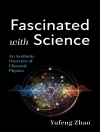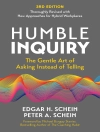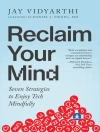Stem cells and the emerging field of regenerative medicine are at the frontiers of modern medicine. These areas of scientific inquiry suggest that in the future, damaged tissue and organs might be repaired through personalized cell therapy as easily as the body repairs itself, revolutionizing the treatment of numerous diseases. Yet the use of stem cells is fraught with ethical and public policy dilemmas that challenge scientists, clinicians, the public health community, and people of good will everywhere. How shall we deal with these amazing biomedical advances, and how can we talk about potential breakthroughs with both moral and scientific intelligence?
This book provides an innovative look at these vexing issues through a series of innovative Socratic dialogues that elucidate key scientific and ethical points in an approachable manner. Addressing the cultural and value issues underlying stem cell research while also educating readers about stem cells’ biological function and medical applications, Stem Cell Dialogues features fictional characters engaging in compelling inquiry and debate. Participants investigate the scientific, political, and socioethical dimensions of stem cell science using actual language, analysis, and arguments taken from scientific, philosophical, and popular literature. Each dialogue centers on a specific, recognizable topic, such as the policies implemented by the George W. Bush administration restricting the use of embryonic stem cells; the potential role of stem cells in personalized medicine; the ethics of cloning; and the sale of eggs and embryos. Additionally, speakers debate the use of stem cells to treat paralysis, diabetes, stroke effects, macular degeneration, and cancer. Educational, entertaining, and rigorously researched (with 300 references to scientific literature), Stem Cell Dialogues should be included in any effort to help the public understand the science, ethics, and policy concerns of this promising field.
สารบัญ
Acknowledgments
Introduction
Harnessing Stem Cells for Regenerative Medicine
Dialogue 1. Hope
Dialogue 2. Why Is This Cell Different from Other Cells?
Dialogue 3. The President’s Stem Cells
Dialogue 4. The Dickey-Wicker Enigma
Dialogue 5. The Moral Status of Embryos
Dialogue 6. Creating Good from Immoral Acts
Dialogue 7. Circumventing Embryocide
Dialogue 8. My Personalized Beta Cells for Diabetes
Dialogue 9. Repairing Brain Cells in Stroke Victims
Dialogue 10. Reversing Macular Degeneration
Dialogue 11. My Stem Cells, My Cancer
Dialogue 12. Reprogramming Cells
Dialogue 13. My Personalized Disease Cells
Dialogue 14. To Clone or Not to Clone: That Is the Question
Dialogue 15. Patenting Human Embryonic Stem Cells Is Immoral and Illegal (in Europe)
Dialogue 16. My Embryo Is Auctioned on the Internet
Dialogue 17. Here Comes the Egg Man: Oocytes and Embryos.org
Dialogue 18. Human-Animal Chimeras and Hybrids
Dialogue 19. Stem Cell Tourism
Dialogue 20. Social Media Meet Science Hype
Dialogue 21. Feminism and the Commercialization of Human Eggs/Embryos
Dialogue 22. Was My Birth Embryo Me?
Dialogue 23. Embryos Without Ovaries
Dialogue 24. My Cells Are Drugs
Dialogue 25. A Clinical Trial for Paralysis Treatment
Epilogue
Notes
Glossary
Index
เกี่ยวกับผู้แต่ง
Sheldon Krimsky is the Lenore Stern Professor of Humanities and Social Sciences in the Department of Urban and Environmental Policy and Planning at the School of Arts and Sciences and adjunct professor in the Department of Public Health and Community Medicine at the School of Medicine, Tufts University. His research focuses on the links among science and technology, ethics and values, and public policy, and he is the author or editor of fourteen books, including
Genetic Justice: DNA Data Banks, Criminal Investigations, and Civil Liberties, and 200 book chapters, journal articles, and reviews.









